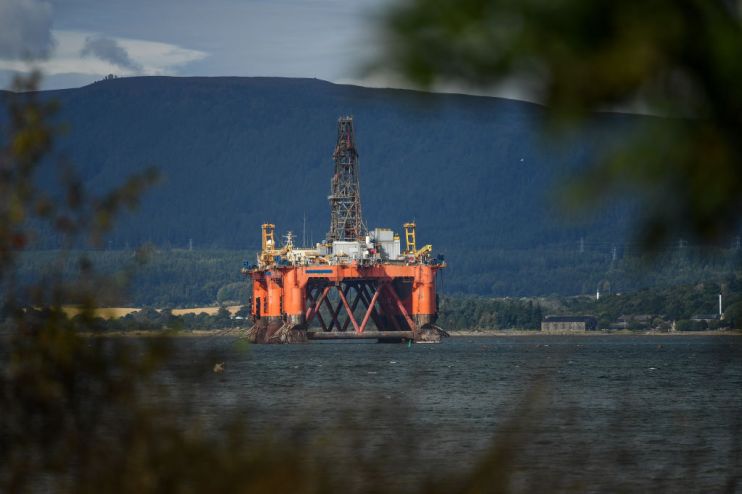Shell upholds pledge to invest in UK energy sector after Sunak unveils £5bn windfall tax

Shell has reaffirmed its commitment to ramp up investment in the UK’s energy sector despite the announcement of a new £5bn levy on North Sea oil and gas operators.
The energy giant has maintained its “fundamental aim” to invest between £20-£25bn in the UK over the next decade, with 75 per cent of its investments focused on low and zero carbon projects.
Its spending commitments will boost government plans to vastly increase the UK’s renewable and nuclear energy generation capacity, alongside further North Sea oil and gas exploration, to reduce the country’s reliance on overseas imports following Russia’s invasion of Ukraine.
The government’s supply security strategy includes raising offshore wind generation from 11 GW to 50 GW by the end of the decade.
While Shell highlighted the need for a “stable environment for long term investment” it noted that the “proposed tax relief on investments” was a critical part of the announced windfall tax.
It also offered its support for customers struggling to pay their energy bills.
A company spokesperson told City A.M.: “We recognize the burden that increased energy prices have across society, in particular on the vulnerable, and have hardship plans in place to help our customers.”
Government offers ‘carrot and stick’ deal to fossil fuel giants
This follows the Chancellor Rishi Sunak announcing to the House of Commons plans for a so-called Energy Profits Levy, a new 25 per cent surcharge on North Sea oil and gas sector profits, which could last for up to three years.
The Treasury expects the tax will raise around £5bn over the next 12 months – which will help fund a £15bn package that could save the country’s most vulnerable households £1,200 this year.
The package will provide relief to energy users suffering record energy bills, which Ofgem expects to rise to at least £2,800 per year this October.
Shell – alongside rival oil and gas giants such as BP and Equinor – has enjoyed record profits in first three months of trading this year, with earnings rising to £9.13bn during the first quarter of trading in 2022.
This has been powered by soaring oil and gas prices, which has made fossil fuel trading highly lucrative.
The government is utilising a “carrot and stick” approach, with energy firms operating in the North Sea already paying a special 40 per cent rate.
This is more than double what domestic corporations currently pay, and with the addition of the 25 per cent levy, it will mean a 65 per cent tax on energy firm profits.
However, it will include relief measures for companies that commit to investing in the UK energy sector, such as an 80 per cent investment allowance which mean businesses will get a 91p tax saving for every £1 they invest.
This nearly doubles the tax relief available and means the more investment a firm makes, the less tax they will pay.
Stuart Adam, senior economist at the IFS, said: “The new super-deduction means that investing £100 in the North Sea will cost companies only £8.75, with the remaining cost paid by the government. So a massively loss-making investment could still be profitable after tax. It is hard to see why the government should provide such huge tax subsidies and thereby incentivise even economically unviable projects.”
Energy industry warns sector at risk from new levy
Despite the investment incentives, the levy was criticised by the UK’s leading offshore energy body.
It warned that the windfall tax as a “backward step” that will discourage investments in the UK’s offshore energy sector.
Offshore Energies UK (OEUK) chief executive Deirdre Michie, suggested the measure could cause oil and gas exploration and production to decline, and force the UK to import more fossil fuels.
In her view, this was the “exact opposite” of what was promised last month in the government’s supply security strategy, as it would make the UK more dependent on overseas buyers.
She also noted that the offshore energy sector is already set to provide £7.8bn to the taxpayer this year – a 20-fold increase on last year.
Michie called for an energy summit between Downing Street and energy producers, and raised concerns that it would also hit jobs further down the supply chain -with the industry currently home to over 200,000 jobs.
She said: “This is a disappointing and worrying development for industry, the shockwaves of which will be felt in offshore energy jobs and communities, and by consumers, for years to come. They will drive away investors and so reduce UK energy production. That means less oil, less gas, and less renewables.”
The levy does not currently apply to the electricity generation sector, despite media reports earlier this week that renewables could be targeted.
This was a source of relief for Good Energy chief executive Nigel Pocklington, the head of a renewables only supplier, who described the idea as “much too complex” without reforming the energy grid to better reflect input costs.
As for the windfall tax, he told City A.M. the current proposals were the “least painful way of doing it” even if he was “wary of its impact on investment.”
However, he criticised the government for failing to announce new measures to increase energy efficiency in UK households, describing it as “glaring hole” in government plans.
He said: “If we could do something about the UK’s high level of energy inefficiency, you could make a lasting impact on bills every year, not just as a one off.